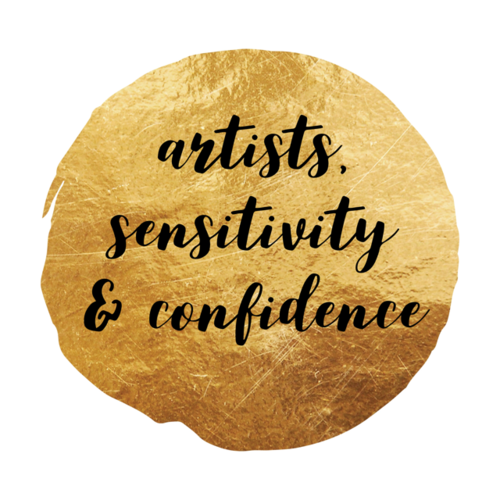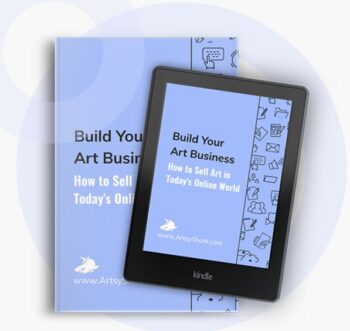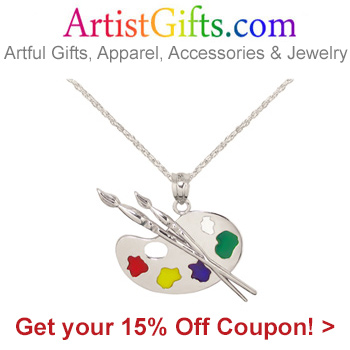by Carolyn Edlund
Douglas Eby, M.A./Psychology is a researcher and writer, and founder of TalentDevelop.com. His many years of study in creativity, giftedness and mental health issues originated from self-exploration into his own development.

AS: Many artists, even seasoned professionals, struggle with self-regard and confidence. How does our culture encourage this?
DE: For centuries, people have enjoyed performances and artwork, while holding attitudes that artists were “vagabonds” or “disreputable.” And still, young people may get messages about choosing a “real” career versus being an artist.
There are many examples in culture of attitudes about artists being on the fringe, or emotionally unstable. Just think about how musicians, actors and visual artists are often depicted in movies and the news.
Writer Brenda Ueland once wrote she thought it is our materialism that makes us feel, “What is the use of writing, painting, etc. unless one has an audience or gets paid for it.” But, she added, Van Gogh “loved something, the sky, say. He wanted to show human beings how beautiful the sky was. So he painted it for them. And that was all there was to it.”
So being an artist as a vocation can include pressure to make it a financial success, and if you don’t achieve that success quickly, it can be hard to maintain your positive self-regard. Arts and entertainment careers can flourish with fame – but if the acclaim isn’t there, an artist can deeply question their identity and the validity of their passion as a way to make a living.
AS: Could you describe how artists can get past these barriers?
DE: One of the keys to developing our talents is believing in our abilities and competence, regardless of public recognition.
The creators of The Passion Test point out, “There are only three things that prevent anyone from living their passions: false beliefs, false concepts and false ideas.”
False or distorting ideas are all around us and can affect our choices, confidence and esteem: like the notion that the arts are a “soft” or “secondary” career – or that if you choose to be an artist, you must be “flaky.”
So, question any concepts or beliefs about being an artist. Endless numbers of people have disregarded the biased ideas of their family and culture to make successful careers in the arts. It can help to read biographies or watch interviews with artists, to learn more about ideas and attitudes that work.
AS: The common myth about the crazy artist may actually describe a “highly sensitive person”. What does this term mean? How does the highly sensitive person feel?
DE: Being a highly sensitive person is a trait of 15 to 20 percent of people, but it seems to be much more common among artists.
It means you may be unusually sensitive to noise, pain, chemicals, caffeine, music, visual art, other people’s emotions, or other input. It can also relate to being introverted – which is not a socially “approved” trait in this country, though it is in others.
A CNN article on “sensory processing sensitivity” reports that people with this trait “tended to have more brain activity in the high-order visual processing regions” – so it can help your skills as a visual artist.
In her article Highly Sensitive Personality and Creativity, therapist Lisa A. Riley writes, “Throughout my practice, I have encountered a connection between highly sensitive people and their own creative impulses.”
The “crazy” aspect is mostly other people not understanding it and being critical: “Why are you so sensitive?” – which can lead to feeling “wrong” or “disordered” for having a “finely tuned nervous system,” as some coaches and psychologists describe it.
AS: Could you suggest resources to help cope with this condition, or find out more about self-help methods?
DE: First, it helps to see that it is not a “condition” in the sense of a “disorder,” but rather a valuable personality trait that may be one of the reasons you are creative.
If you are highly sensitive, to work at your best and be most creative, you need to take care you don’t drain your energy from being overwhelmed. There are books about that, and a number of coaches.
Jenna Avery, for example, explains, “Coaching focuses on helping us claim the truth of who we are, steep in self-acceptance and acknowledgement, nurture our own well-being, and celebrate the expression of our gifts and true selves in the world.”


This is quite an important subject to talk about! I believe that the attitude that the general populace holds towards the arts is unfathomably damaging not only to artists, but to people who stand to benefit and enjoy the arts to a more profound degree.
Almost every artist fights to feel valid in their desire to develop a career in the arts, and I’ve been fortunate enough to know a few who make a good living at it. But I’ve read so much doubt from friends, family, peers, co-workers and acquaintances about the idea that I might be able to do the same with my own art or make a living within the art industry, that I have to fight the mostly subconscious low confidence that results from such doubt. These are people who I can see earnestly love my work and, paradoxically, heavily encourage me to follow my dreams.
I see many artists around me experience the same problems. I’m not sure if it’s a problem of our age, or something that artists have struggled with for centuries, but it’s one that I want to work towards alleviating.
Hello Samantha. I do believe you have stolen the words right out of my mouth. We seem to live parallel lives. I have just resumed my art career after 35 years of working to support my family. I am 62 and finally decided that it was my turn as I gave up my art for them. Oh I always did something creative…kitting or something. But One year ago I decided that if I didn’t do what I love now, I never would. So I have built up a portfolio and am self marketing everywhere I can. This is way outside the box for me. And though everyone always knew I was an artist, and knew I was good at it, when I told them of my plan you would think I just told them I was going to fly. They act like I have abandoned them. They were not supportive and generally rolled their eyes at me. My parents were encouraging but unfortunately they passed away. So my support system has grown from fellow artists I have met on line. I just got my work into a gallery out of the us, in Canada. It has only been two weeks since I sent my work up there, but as far as I am concerned I won the lottery. I met every goal I set. I think I have figured out what the problem is. The two most unsupportive members of my family, my husband and daughter, I think are upset that my attention is totally on my art at the moment and not on them. It’s as simple as that. I am now called selfish, because I actually put myself first for once in my life. They are not used to that and they do not like it. In fact when I have sold work it seems as if it is so hard for them to say anything positive. Then add to that the difficulty in getting one’s name established and the hurdles sometimes seem insurmountable. I also believe that it is not just the times we live in, but rather it has always been this way. Creatives instead of being revered are thought to be weird. I for one am extremely tired of negative labels and having to defend myself. I am happy with what I do and who I am. It’s a shame others cannot celebrate our differences rather than persecute or put down.